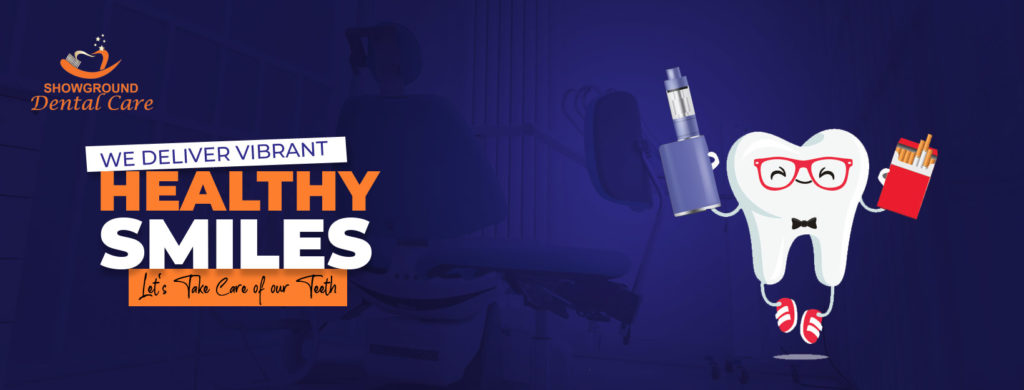How Bad Is Vaping For The Teeth And What To Do About It?
Over the past decade, vaping has surged in popularity as a perceived safer alternative to traditional tobacco smoking. Its appeal lies in the assumption that vaping poses fewer health risks, including for oral health.
So how does vaping effect your teeth?
Well to understand this, we must first understand how vaping works.
Vaping involves inhaling and exhaling aerosol produced by electronic cigarettes or similar devices. The process typically consists of heating a liquid solution known as e-liquid or vape juice, which usually contains nicotine, flavourings, and other chemicals. When heated, the liquid transforms into an aerosol, which the user inhales into their lungs.
Tooth enamel is the protective outer layer of teeth, and it plays a vital role in shielding teeth from decay and sensitivity. One of the primary concerns with vaping is the potential erosion of tooth enamel. While vaping does not expose teeth to the direct combustion and harmful tar found in traditional cigarettes, it does expose them to acidic vapor, which can erode the enamel over time.
Vaping may also negatively impact gum health. As mentioned earlier, nicotine constricts blood vessels, reducing the blood flow to the gums and affecting their ability to heal. This can lead to gum inflammation, or gingivitis, which is the first stage of gum disease. If not addressed, gingivitis can progress to periodontitis, a more severe form of gum disease that can cause gum recession and even tooth loss.
How does vaping affect your teeth?
- Dry mouth: Nicotine reduces saliva production, leading to a dry mouth. Saliva is really important for the teeth as it protects the teeth from harmful bacteria and neutralise harmful acid.
- Gum issues: Nicotine restricts blood flow, reducing the ability of the gums to heal which can lead to gum inflammation and more severe gum disease.
- Erosion of tooth enamel: While vaping does not expose teeth to the direct combustion and harmful tar found in traditional cigarettes, it does expose them to acidic vapor, which can erode the enamel over time leading to decay, cavities and other dental problems.
Dental tips for protecting teeth from effects of vaping
- Stay Hydrated: Drinking water regularly helps to keep your mouth moist and washes away any harmful substances that may be lingering on your teeth and gums.
- Chewing Sugarless Gum: Chewing sugarless gum after vaping can stimulate saliva flow, which helps to neutralize acids and protect your teeth.
- Avoid Vaping Before Bed: Refrain from vaping or using any tobacco or nicotine products before bedtime. This reduces the risk of dry mouth, which can increase the chance of dental issues.
- Limit Sugary E-liquids: Many e-liquids contain high amounts of sugar, which can contribute to tooth decay. Choose e-liquids that are sugar-free or low in sugar to minimize the risk of cavities.
- Schedule Regular Dental Checkups: Visit your dentist for regular checkups and cleanings every six months or as recommended. Regular dental visits can help identify and address any oral health issues early on.
- Quit Vaping: The most effective way to prevent the negative effects of vaping on teeth is to quit altogether. Avoiding exposure to harmful chemicals and substances is the best way to protect your oral health. Trying nicotine patches as an alternative


